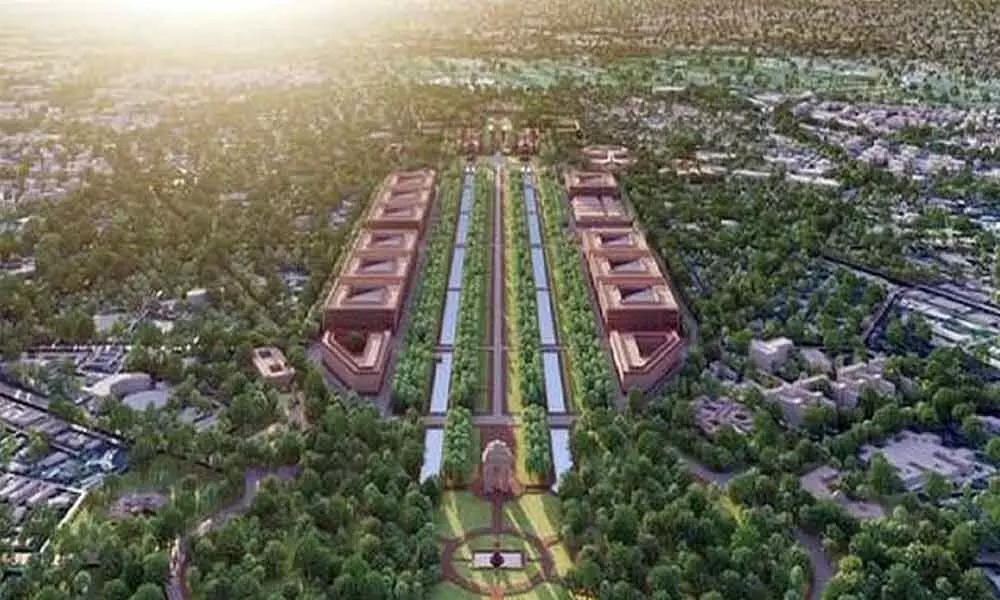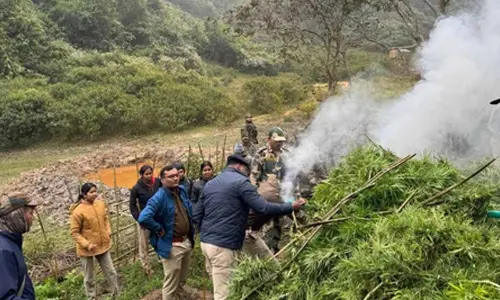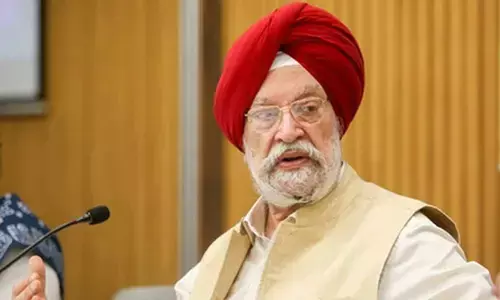Environmental organisations against the construction of Central Vista, demand resources to be diverted to contain Covid

Environmental organisations against the construction of Central Vista
The COVID pandemic is ravaging India, affecting virtually every family in one way or another. The abysmal state of the public health system and the callous ignoring of credible expertise and clear warnings, by the central and most state governments, have brought us here.
The COVID pandemic is ravaging India, affecting virtually every family in one way or another. The abysmal state of the public health system and the callous ignoring of credible expertise and clear warnings, by the central and most state governments, have brought us here. Doctors, nurses, paramedics, and all other frontline workers are overstretched and have lost their colleagues in the line of duty. The pandemic's second wave in India is a systematic political failure for which the government needs to be held accountable.
The spread of the virus has shown the strong relationship between our environment and human health. As Ritu Priya, professor at Centre of Social Medicine and Community Health, Jawaharlal Nehru University, and a member of the Vikalp Sangam Core group says, "the focus now must shift on human and environmental health and well being."
Vikalp Sangam, a platform working towards socially just and ecologically sustainable,alternative pathways to well-being, suggests immediate, short, medium and long term measures for mitigating the impacts of the pandemic on the lives and livelihoods of millions of people. These recommendations have been endorsed by around 65 leading civil society organizations and movements working in various parts of India, comprising the Vikalp Sangam's Core Group.
Vikalp Sangam demands that all the unnecessary expenditures including the construction of lavish Central Vista must be halted and all available resources must be diverted to urgent COVID response.
For immediate measures, Vikalp Sangam recommends: providing primary and home care support to mild to moderate patients in urban and rural areas, ensuring timely oxygen and respiratory support facilities, raising awareness of rational medical treatment based on credible scientific studies and long-term experience, ensuring accessible vaccination free of charge to all those who want it, and various other immediate and short term measures for health including access to traditional and modern systems of health that could provide immunity and cures.
Abha Bhaiya of Jagori Rural, an active member of Vikalp Sangam, notes that vulnerable sections of the population are worst affected. Accordingly, the statement also demands wages, food and social security for such sections, including the elderly, orphaned children, migrant and daily wage workers, transgenders and sex workers, single mothers, pregnant and lactating women, small-scale farmers, fishers, pastoralists who cannot access the market and amongst them especially women, Dalits and Adivasis.
In addition, medium and long measures recommended by the Vikalp Sangam include enabling local, self-reliant livelihood options that are also ecologically sustainable, revamping and democratising the public health system, enhancing mental health and counselling services, prioritising restoration and conservation of natural ecosystems, and enabling agency over common lands and productive resources to local governance systems.
Given the impacts of climate change and other ecological damage and impending pandemics that are predicted to become more frequent in the coming decades, it is important to question a development ideology based only on growth in GDP, which is meaningless as shown by the pandemic. Such growth has only increased inequalities, economic insecurity amongst tens of
millions, and ecological devastation. As Ashish Kothari of Kalpavriksh, one of the coordinators of the Vikalp Sangam, says: "We have to move to alternative ways of achieving human well-being while protecting the ecological foundations our lives depend on and there are hundreds of practical initiatives already that show us the way."














